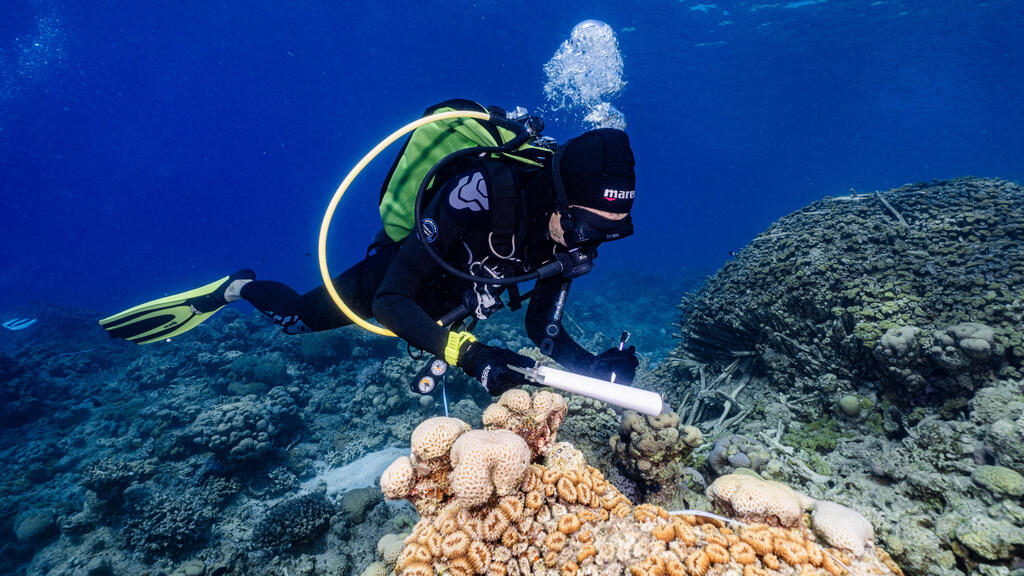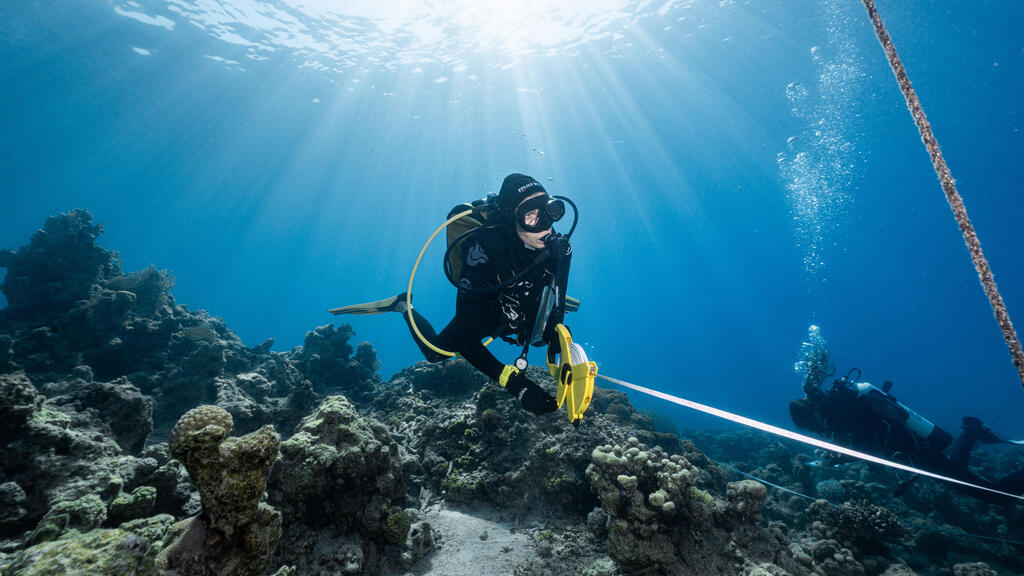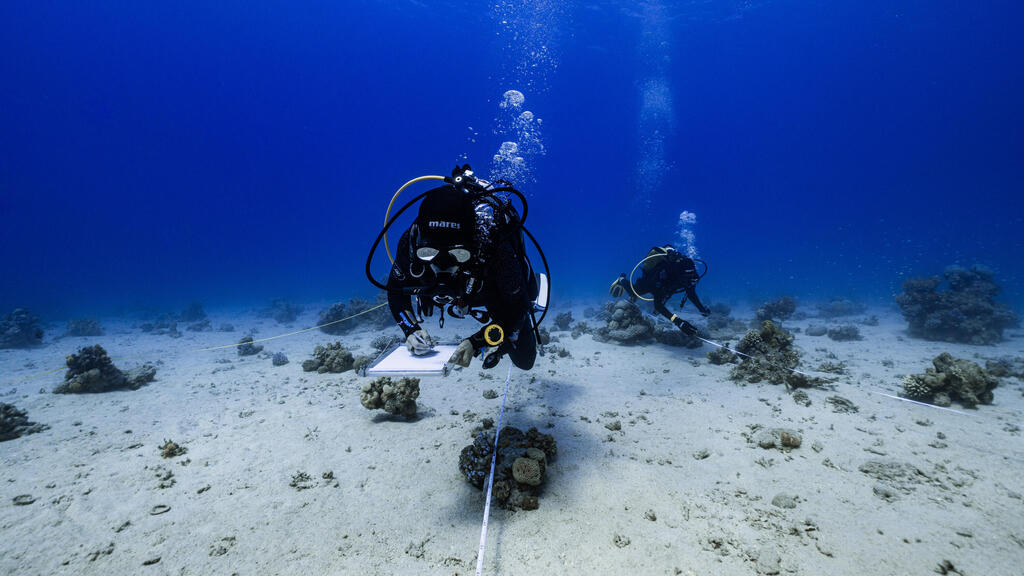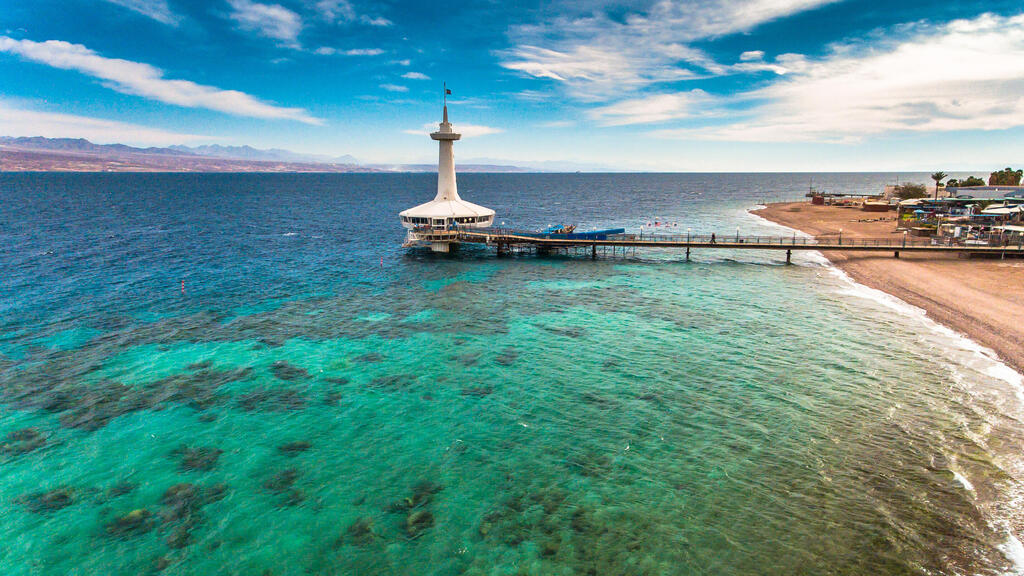The Environmental Protection Ministry released its National Monitoring Program report for the Gulf of Eilat on Sunday. The report indicates a continued trend of rising temperatures in the area’s deep waters, as documented in previous surveys. Additionally, sea surface temperature has been increasing since 1988 at an average rate of about half a degree Celsius per decade, 2.5 times faster than the global average.
The warming trend in the deep waters is also progressing and is expected to impact the whole ecosystem’s behavior. A record high temperature of 30°C has already been recorded in the Gulf of Eilat, while the average annual temperature stands at only 27°C.
The Environmental Protection Ministry said the findings suggest the Gulf of Eilat’s ecosystem is unstable, underscoring the need to continue implementing a policy set by the ministry to save the area.
According to the report, as long as global climate changes — such as sea temperature rise and increasing acidity — aren’t improving and even worsening, there’s an immediate need to reduce local stressors like marine pollution and oil spills, which the coral reef may struggle to cope with.
Rising temperatures are a significant cause for concern. Additionally, in 2023, a disease outbreak among the sea urchin population in the gulf led to widespread mortality, and it is unclear whether the population will ever recover.
The government is attempting to abolish the ministry’s new policy for the gulf during a government meeting on the same day the report was released. The policy, introduced by former Environmental Protection Minister Tamar Zandberg, prohibits actions putting the reef in further danger.
Now, in order to allow the Europe Asia Pipeline Corporation (EAPC) to increase the volume of oil transported through the gulf, the government seeks to overturn the policy. A proposal signed by the Prime Minister's Office, Finance Minister Bezalel Smotrich, and Regional Cooperation Minister Dudi Amsalem aims to cancel the policy.
The Prime Minister's Office has been trying to advance the proposal in recent weeks, which has been repeatedly brought up and removed from the agenda due to pressure from southern mayors, green energy organizations, and Environmental Protection Minister Idit Silman.
Prof. Maoz Fine from the Interuniversity Institute for Marine Sciences in Eilat, one of the authors of the monitoring report, explained that although the findings are troubling, some hope exists.
Most monitoring sites saw an increase in the density of stony corals, in some cases even reaching levels seen before the unusual storm that hit the city in 2020, which resulted in the loss of about 22% of the corals.
However, the lagoon area, the region between the reef and the shore in the Coral Beach Nature Reserve, has been unable to recover and has been deteriorating since 2010 for reasons still unknown.
"It's a good sign that the reef’s ecosystem can still cope with the damage," Prof. Fine explained. "For the first time since 2017, we’re seeing the addition of young coral colonies. The corals are reproducing and integrating into the reef. This is positive compared to what's happening globally. We still have something to protect."
However, the rising temperatures continue to worry Prof. Fine. According to him, in controlled experiments conducted in the lab, the corals showed resilience to high temperatures of 32°C. While corals in the oceans are dying, the one in Eilat is slowly recovering. The main concern is that an increase in nutrients could lead to water turbidity and algae blooms, which could cause the collapse of the delicate ecosystem.
The report’s results indicate the accumulation of nitrates in the gulf’s deep waters, which aren’t being cleansed as effectively as before, threatening the quality of the entire water column in the gulf.
"This is a situation that endangers the coral reef and all marine activities in the gulf. The monitoring team recommends considering this information and exercising extreme caution before making any decision that would increase the nitrogen load being discharged into the sea," the report's authors wrote.
The coalition opposing the increase in oil transportation in the gulf includes local authorities, environmental organizations like the Society for the Protection of Nature in Israel, and health organizations. "The Israeli government is neglecting the security of Eilat and Ashkelon’s residents by advancing a proposal that would increase the risks to residents living near the EAPC oil pipeline," they said.
“The company was responsible for the largest oil spill disaster in the Evrona Nature Reserve, as well as a jet fuel leak in Nahal Zin, pollution in the Hof Ashkelon Regional Council area, and more,” they added.
Eilat Mayor Eli Lankri announced that should the proposal be approved, he’ll work to revoke EAPC's business license, preventing them from operating within the municipality’s jurisdiction.
EAPC said in a statement, "The government’s decision to cancel the risk policy for the reef, which was imposed due to populist considerations and without professional evaluation, is necessary, and Israel's security challenges and needs have proven this.”
“The government decision comes after a thorough examination by a professional committee that heard from all parties, including green organizations and professionals from government ministries who supported EAPC's position. We’ll continue to ensure a continuous energy supply for the benefit of Israel's residents,” the company added.






